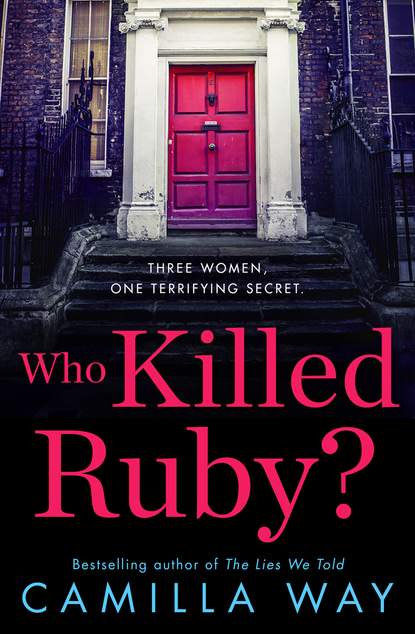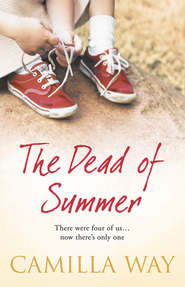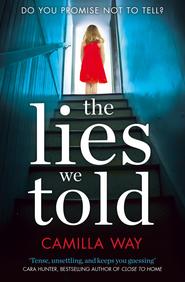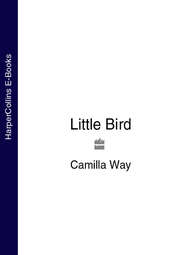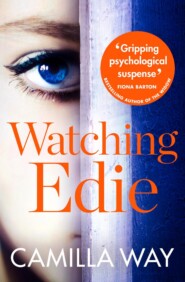По всем вопросам обращайтесь на: info@litportal.ru
(©) 2003-2025.
✖
Who Killed Ruby?
Автор
Год написания книги
2019
Настройки чтения
Размер шрифта
Высота строк
Поля
When Viv wakes the next morning to the sound of Cleo showering down the hall, she lies in bed staring at the ceiling for a while, thinking about Ruby and the black hole of memories she’d fallen into the night before. The little white Essex cottage, their sudden escape to London, the decade spent at Unity House. She looks at her alarm clock and, remembering it’s Saturday and that Cleo has a football match she needs driving to, groans and pulls herself from the bed. She drank too much again last night. After Cleo had gone to bed she had thought about Monday’s anniversary and one glass of wine had turned into another and then another, as they so often do. Wrapping a dressing gown around herself, she stumbles downstairs to the kitchen where she finds the empty wine bottle and shoves it guiltily in the recycling box with the others.
As she makes herself coffee she gives herself a mental shake. Ruby’s death was so long ago; they had survived it, both she and Stella. Jack Delaney had been found guilty and sent to prison, and that was that. It was all in the past.
She’d been in her thirties when he’d finally been released, thanks to an extra eight years added to his sentence for an attack on a fellow prisoner so vicious it had left his victim in a coma, permanently blinded in one eye. On Jack’s release, Viv had avoided all news stories about him, even taking Cleo, ten by then, on holiday to France in case the papers decided to print his picture. She had only vague memories of what he looked like: dark hair, a thin, cruel mouth and heavy brow, but nothing substantial; his image had been banished to the part of her brain where her darkest terrors lived and the shadowy figure who stalked her nightmares was frightening enough without furnishing it with the details a photograph would provide. Her mother later heard he’d emigrated to Canada, and though that should have given Viv comfort, it hadn’t, not really: as long as he was alive she would fear him.
She carries her coffee across to the table and sits down. A pale morning sun casts its glow across the parquet flooring and the kitchen has a gratifyingly warm and cosy feel. This morning, she thinks with satisfaction, her house looks exactly like the tasteful, comfortable, middle-class home she’d spent the past fifteen years and an awful lot of money trying to create. In fact, every room of her pretty Georgian townhouse is a testament to the hours spent lovingly restoring each period detail, or trawling auctions and eBay for the perfect antique lampshade or table or chair. A million miles from the little white cottage, the large and chaotic commune – the sort of home where nothing bad ever happened and never would. A perfectly nice, perfectly safe place in which to raise her daughter.
She hears Cleo come clattering down the stairs seconds before she bursts into the room, stuffing her football kit into her bag. Her curls still wet from the shower, she takes one look at her mother and wails, ‘Oh Mum! You’re not even dressed! You’re supposed to be taking me to footie!’
Guiltily Viv jumps to her feet. ‘OK, OK! I’ll be ready in two minutes. Jeez, relax!’ She gulps her coffee and hurries from the room.
Five minutes later as they are leaving the house, Cleo impatiently rushing ahead, Viv spies their new neighbour, Neil, cutting his hedge. Not having the heart to ignore his eager smile, she gives him a wave, ‘Hello there!’ He’s a slightly chubby man who looks to be in his late forties with badly dyed brown hair and a rather grating laugh, but he’s harmless enough; a welcome antidote at least to the self-satisfied hipsters who’d descended on the area in droves in recent years.
Ignoring Cleo, who’s scowling and rolling her eyes, she says, ‘You’re up and at ’em early, Neil. How’s it all going with the renovations?’
‘Oh, slowly, slowly, you know how it is.’
‘You’ve done wonders with the place.’ She glances up at the sash windows he’s recently installed. It is, in fact, quite astonishing what he’s managed to do in such short a time. Before he’d moved in, the property had belonged to a sweet elderly Cypriot woman who, due to ill health, had allowed the house to fall to rack and ruin over the fifty years she’d lived there. By the time she’d died it had been almost derelict. Shortly after the funeral her daughter had put it on the market for a price Viv had thought extortionate, considering the work that needed doing to it, and it had languished on the market for over eighteen months before suddenly it had sold, to the entire street’s surprise, for the full asking price. A few months later, Neil had moved in.
He’s looking at her hopefully. ‘You and Cleo will have to come round for a cup of tea sometime. I can show you what I’ve done inside.’
‘We’d love to,’ she says, beginning to edge away. ‘That’d be great.’ She smiles apologetically, ‘I’m afraid we’ve got to run now, footie practice, but let’s definitely do that soon, thank you.’
She feels him watching her as they get into the car. Oh, God, does he fancy her? She doesn’t really get that vibe, though she’s not quite sure what vibe she does get, exactly. Perhaps he’s just a bit lonely: she never sees any friends dropping by, no one who looks like family for that matter either. She finds herself hoping very much that he doesn’t fancy her; there’s something about his high-pitched giggle, his eager-puppy eyes that creeps her out a little. Immediately she feels a twinge of self-reproof: You’re not exactly beating them off with a stick yourself, Viv. And then she thinks of Shaun and cringes.
There’s a short warm-up before the match starts so Viv decides to wait in the car. The icy rain that had begun to fall on the journey over there begins to pick up pace and she turns up the heater, savouring these last moments of warmth and dryness before she’s forced out into the freezing cold to watch her rosy-cheeked daughter run around the sodden sports field, happy as a pig in mud. Cleo certainly hadn’t inherited her love of sport from her.
She changes the CD she’d been listening to and idly thinks about what to cook for Samar and Ted later when they come over for lunch – something she’d organized to distract herself from the looming anniversary of Ruby’s death. Before long her thoughts turn to the café and the refurb she’s planning, and she feels a pleasurable tug of excitement.
She sometimes has to pinch herself when she considers how well her life has turned out. A beautiful daughter, her own house and business. For a terrifying time, it had seemed likely that she might not make it through her twenties alive – in fact, if it hadn’t been for Stella and Samar, she doubts she would have done.
In 1991, when she was fourteen, she had received completely out of the blue, a letter telling her that both her maternal grandparents had died and left all their money to her. An astonishing sum of £500,000, to be held in trust until her eighteenth birthday. Half a million pounds! She had called for her mother, remembering the journey they’d made to her grandparents’ beautiful home, senseless with grief and shock, in the aftermath of Ruby’s murder. How her mother had told her, ‘There’s nothing for us here.’
Stella had read the letter in silence. ‘Well,’ she said neutrally, when she’d finished. ‘Looks like you’re going to be rich.’
‘But why didn’t they leave it to you?’ Viv had asked incredulously. ‘They didn’t even know me!’
Stella dropped the letter to the table and said, ‘I don’t want their bloody money.’
In the silence that followed they heard Margo walking to and fro in her bedroom above and Vivienne saw her mother’s whole bearing tense at the sound. ‘What happened between you and your parents?’ she asked her tentatively. ‘Why did they treat you so badly?’ It was a question she’d tried to ask her mother many times over the years, but had never received a satisfactory answer.
But to her surprise Stella said, ‘I didn’t do what they wanted – university, a career, a good marriage. I was so young when I fell pregnant with Ruby. I let them down. They couldn’t forgive me.’
‘And they punished you forever after?’ Viv said hotly. ‘Well, they were bloody bastards, then! I don’t want their money either!’
‘Take it.’
‘No way. Or if I do, we’ll share it.’
And though it had taken her a long time, eventually Stella had been persuaded, and at eighteen, Viv had found herself in the astonishing and very dangerous position of having more money than she knew what to do with. Now, as she waits for Cleo’s football match to start, she pushes the memory away. What had followed had been one of the darkest times of her life and wasn’t something she liked to dwell on.
After the muddy, wet and interminable football match, Viv and Cleo return home, Viv to make a start on lunch, Cleo to get straight on the phone to invite her friend Layla over. ‘To help me with my English essay,’ she explains, somewhat unconvincingly.
Viv’s peeling potatoes when Layla arrives. She pops her head around the door on her way up to Cleo’s room and Vivienne waves hello. ‘How’s it going, sweetheart? Nice to see you.’ Layla and Cleo have been friends since nursery school. She’s a slight girl, with neat tight cornrows, lavender-framed glasses and a terrifyingly high IQ. Layla holds strong views on everything from fracking to the Gaza Strip and isn’t afraid to air them. Though her parents – a jolly, extrovert couple from Mozambique – run a dry-cleaner’s and her older sister Blessing is training to be a beautician, Layla intends to be a human rights lawyer when she grows up, and Viv has absolutely no doubt whatsoever that this will happen one day.
‘Samar and Ted are coming over soon,’ she tells her. ‘Do you want to join us for lunch?’
Layla narrows her eyes. ‘Will it be vegan-friendly, Vivienne?’
‘Erm, no. No, I’m afraid it probably won’t.’
Layla looks at her severely through her glasses. ‘In that case, no thank you. I’ve been reading about the effects of meat consumption on the environment and frankly want no part of it.’
Viv smiles, and notices that Layla is carrying a small duffle bag. ‘What’ve you got in there?’
But before she can reply, Cleo appears and pulls her friend by the arm. ‘Come on, let’s go to my room.’
A moment later Viv hears Cleo’s door close and the stereo being switched on, and she relaxes, relieved that Cleo seems to have bounced back after the disappointing visit to her father’s a few weeks before. Mike had recently had a new baby with his girlfriend Sonia, and Cleo’s last visit had been her first introduction to her half-brother. She’d been quiet when she returned, and evasive to Viv’s gentle questioning. She absolutely doted on her dad, despite the myriad ways he’d let her down. Viv sighs and gets the chicken out of the fridge ready for roasting, shuddering when she remembers that had also been the weekend she’d slept with Shaun. Should have been grateful, saggy old bitch. Jesus. She shakes her head: she certainly knew how to pick them.
Upstairs, Layla is watching Cleo rummage through her duffle bag. ‘What do you want all this stuff for anyway?’ she asks her. ‘My sister will go crazy if she finds out I’ve taken it.’
Cleo pulls out a handful of cosmetics and looks at them in wonder. ‘I want you to take a picture of me, I’m sick of looking the way I always look. I’ve been watching YouTube videos on how to put this stuff on.’
Layla frowns. ‘But what’s the picture for?’
‘Just … OK, promise not to freak? I’ve been talking to this boy online, on the Fortnite forum, you know? His name’s Daniel and he sent me a picture of himself and he’s amazing. Now he wants one of me. And I don’t want to look like some stupid kid. I want to look cool.’
Layla’s unimpressed. ‘I think this is a very bad idea, Cleo. It’s highly likely that this Daniel person is what’s known as a catfish. They made us watch that documentary about it at school, remember?’
But Cleo only shrugs. Yes, he could be a fake, but she doesn’t think so, and in a way, it doesn’t really matter. It’s like a game she’s caught up in. She’s never going to meet him, so what’s the harm in it? It’s almost like getting lost in a film or a book, a fun, easy way to talk to a cute boy without the embarrassment of having to do it face-to-face. And she’s found she wants to be different, suddenly, from the same old Cleo who plays football and gets good grades and looks much younger than everyone else in her year. She’d heard a few boys at school talking about her as she walked past them a week or so ago, sniggering, saying she looked like a boy and had no breasts, that they wouldn’t touch her with a bargepole. And even though she knew deep down they were idiots, it had triggered something inside her, a restless anxiety that she was being left behind. She wished she could be more like Layla and not care, but the truth was she did. ‘I just want to try it,’ she says to her friend. ‘Will you help?’
Sighing, Layla picks up a tube of mascara and a lipstick, and shrugs her agreement, surprising both of them over the next twenty minutes by being a dab hand with it. ‘No idea why Blessing needs to go to college to learn how to do this stuff,’ she mutters, running some straightening irons through Cleo’s hair. ‘It’s not exactly rocket science.’
Cleo smiles and listens to the sounds of her mother preparing lunch downstairs. She thinks about how over the past few days her mum’s face has taken on a familiar, distracted look. Every year at this time it’s the same: the sadness of an awful, unimaginable thing that had happened a lifetime ago to someone she had never known sweeps through their house, pressing itself against the window panes, drifting up between floorboards, dimming the lights and chilling the air. And this year, like all the ones before it, she’d had no idea what to say to make her mum feel better.
‘Do this,’ Layla instructs her, pushing her lips into a pout as she brandishes a shade of lipstick called Hubba Hubba!
As Cleo obeys, her thoughts turn to her recent visit to her dad’s house, how much she’d been looking forward to meeting her new brother, how when she’d arrived it had been nothing like she’d thought it would be.
Her dad and Sonia seemed to exist in an exhausting cycle of nappies and feeding and sleepless nights, beset with anxieties about sniffles and temperatures and something called colic, something called croup. The baby had been clamped to Sonia’s breast for what seemed like hours on end and Cleo had felt in the way, an inconvenience. When she talked, her voice was too loud, her movements too clumsy. When she’d finally been allowed to hold Max, he had screamed so hard that Sonia had taken him back with a sigh of exasperation and she’d started to cry herself, only for her dad to say, ‘For goodness’ sake, Cleo, don’t you start; you’re a big girl now, grow up!’
And despite his exhaustion, she’d seen how her dad gazed down at his new son, felt the love that bound the three of them so tightly, and something inside her had hurt, as though the more warmth there was in their little house, the colder she felt inside, and she’d wanted to go home to London, feeling guiltily relieved when her dad drove her to the station and tiredly waved her off.
‘Right,’ says Layla briskly. ‘All finished.’ Eagerly Cleo goes to look at herself in the mirror and grins in amazement. Her hair is sleek and sophisticated rather than its usual mess of curls; the eyeliner, mascara and lipstick Layla’s used has definitely made her look prettier as well as older – at least fifteen, she thinks. She runs to her mother’s room and returns wearing a red, scoop-necked T-shirt, then again gazes at her reflection in the mirror, delighted with herself. ‘OK, now take a picture of me,’ she says excitedly.
Later, when Layla has left, Cleo sends the picture straight to Daniel. His response is almost instant – Wow, you’re so beautiful! – and happiness fizzes inside her. Then she hears her mum calling from downstairs. ‘Cleo? Sammy and Ted are here. Come down!’
G2g xx, she writes, then runs to the bathroom and scrubs the make-up from her face, before returning the T-shirt to her mother’s closet and heading for the stairs.





